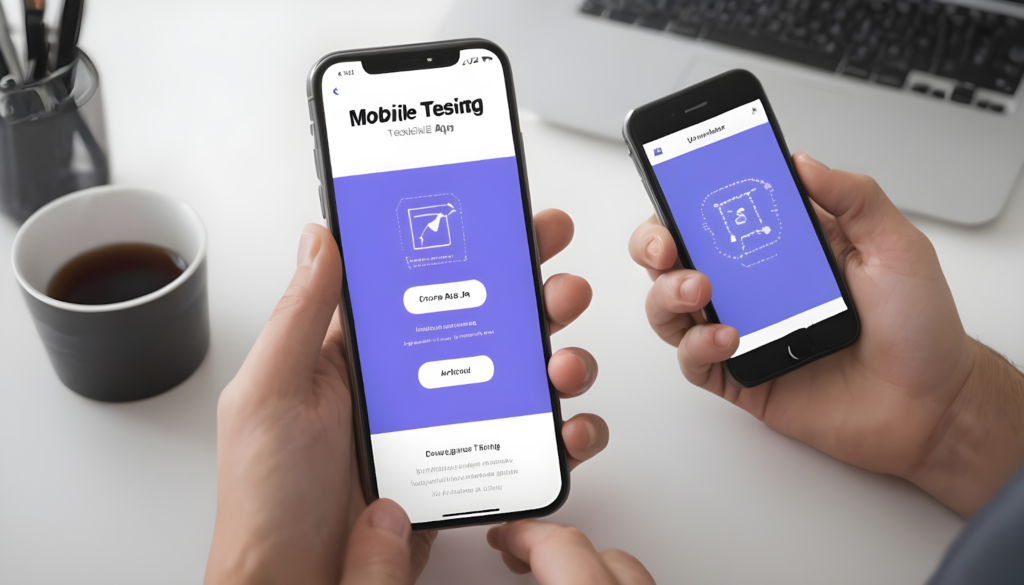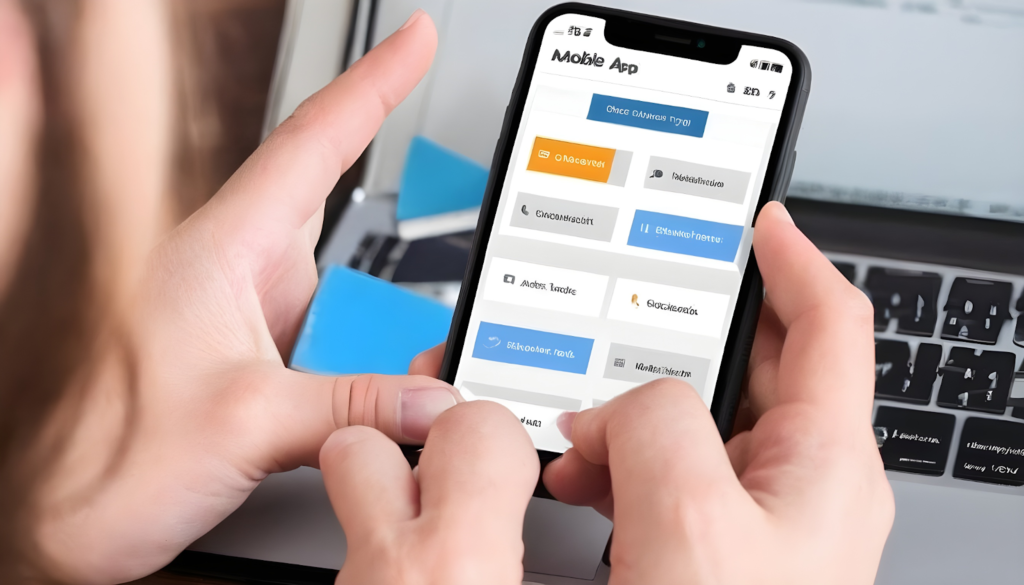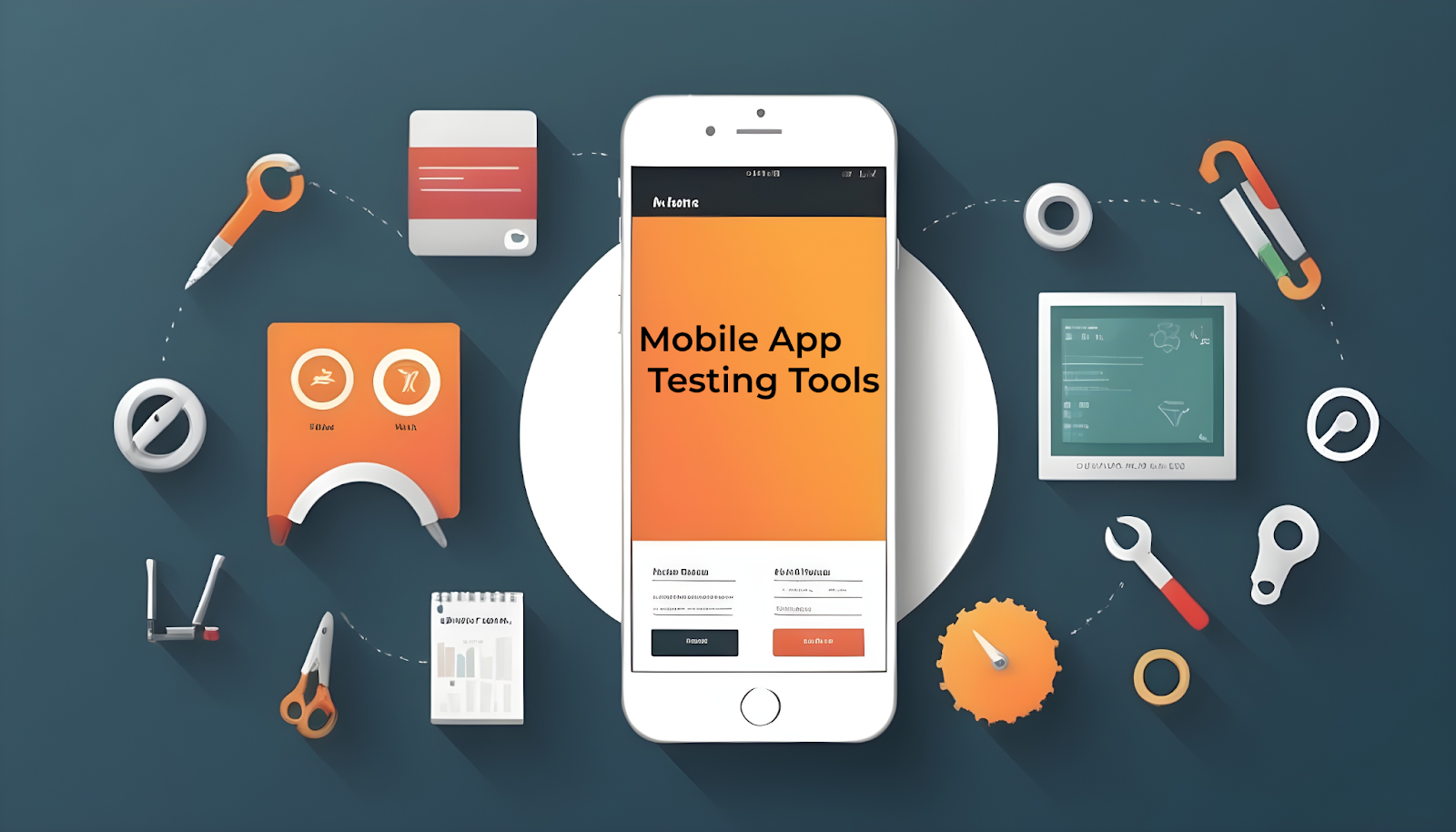Ultimate Guide to Mobile App Testing Tools: A Comprehensive Overview
Mobile app testing is a crucial aspect of the app development process. It ensures that the app functions as intended provides a seamless user experience, and meets the expectations of users. In today’s highly competitive app marketplace, organizations need to go beyond just developing an app and focus on delivering a high-quality product.
The landscape of mobile app testing tools is diverse, with a wide range of options available to developers and testers. These tools help streamline the testing process, automate repetitive tasks, and ensure the reliability and performance of mobile applications.
Why Mobile App Testing Tools Matter
Mobile app testing tools play a vital role in the mobile app development lifecycle. They help identify bugs, errors, and performance issues early on, allowing developers to address them before the app is released to the market. Inadequate testing can have a significant impact on the user experience and the success of the app.
According to statistics, the mobile app market is growing rapidly, with millions of apps available for download. Users have high expectations for app performance, usability, and security. Therefore, it is crucial to invest in reliable testing tools to meet these expectations and ensure the success of your app.
Types of Mobile App Testing Tools

There are several categories of mobile app testing tools that cater to different aspects of the testing process. These include:
- Manual Testing Tools: Manual testing involves human testers executing test cases and verifying the app’s functionality, usability, and user experience. Manual testing tools provide a platform for testers to perform these tests efficiently and effectively.
- Automated Testing Tools: Automated testing tools use scripts or code to automate the execution of test cases. They help save time and effort by automating repetitive tasks and allowing for faster and more efficient testing.
- Performance Testing Tools: Performance testing tools evaluate the app’s performance under different conditions, such as high user loads or limited network connectivity. These tools help identify bottlenecks and performance issues, ensuring that the app is stable and responsive.
- Security Testing Tools: Security testing tools help identify vulnerabilities and weaknesses in the app’s security measures. They ensure that user data is protected and that the app meets industry security standards.
- Compatibility Testing Tools: Compatibility testing tools ensure that the app functions correctly across different devices, operating systems, and screen sizes. They help identify compatibility issues and ensure a consistent user experience.
Top Mobile App Testing Tools in Each Category
Manual Testing Tools:
Manual testing tools provide a platform for testers to execute test cases and verify the app’s functionality, usability, and user experience. Some popular manual testing tools include:
- TestMunk: A cloud-based mobile application automation testing tool that provides high-resolution screenshots of each step in the testing process.
- Ubertesters: A quality assurance testing tool that simplifies the mobile beta testing process and offers in-app bug editing features.
Automated Testing Tools:
Automated testing tools automate the execution of test cases, saving time and effort. Some leading automated testing tools for mobile app testing include:
- Appium: A cross-platform mobile test automation framework that supports Android and iOS apps.
- Selenium: A popular open-source automated testing framework that supports web and mobile app testing.
- Espresso: A mobile test automation framework specifically designed for Android app testing.
Performance Testing Tools:
Performance testing tools evaluate the app’s stability, speed, and resource usage under different conditions. Some widely used performance testing tools include:
- Apache JMeter: A popular open-source performance testing tool that simulates heavy user loads and measures the app’s performance.
- LoadRunner: A comprehensive performance testing tool that helps identify bottlenecks and performance issues in the app.
Security Testing Tools:
Security testing tools help identify vulnerabilities and protect user data. Some notable security testing tools for mobile app testing include:
- OWASP ZAP: An open-source security testing tool that helps identify security vulnerabilities in web and mobile applications.
- AppScan: A comprehensive security testing tool that scans mobile apps for potential security risks.
Compatibility Testing Tools:
Compatibility testing tools ensure that the app functions correctly across different devices and platforms. Some popular compatibility testing tools include:
- BrowserStack: A cloud-based testing platform that allows developers to test their apps on real devices and browsers.
- Sauce Labs: A cloud-based testing platform that provides access to a wide range of real devices and browsers for testing.
Factors to Consider When Choosing a Mobile App Testing Tool

When selecting a mobile app testing tool, there are several factors to consider:
- Type of App: Consider the type of app you are developing (native, hybrid, web) and ensure that the testing tool supports the specific requirements of your app.
- Budget Constraints: Evaluate the cost of the testing tool and ensure that it fits within your budget.
- Team Expertise: Consider the skills and expertise of your testing team and choose a tool that aligns with their capabilities.
- Scalability and Flexibility: Consider the scalability and flexibility of the testing tool to accommodate future growth and changes in your app.
- Integration Capabilities: Ensure that the testing tool integrates seamlessly with your existing development and testing environment.
Best Practices for Mobile App Testing
To enhance the effectiveness of mobile app testing, consider the following best practices:
- Establish Clear Testing Objectives: Define clear testing objectives and goals to ensure that the testing process is focused and efficient.
- Implement a Mix of Manual and Automated Testing: Combine manual and automated testing approaches to leverage the strengths of each method and achieve comprehensive test coverage.
- Conduct Thorough Performance and Security Testing: Prioritize performance and security testing to ensure that your app is stable, responsive, and secure.
- Regularly Update Testing Strategies: Continuously update your testing strategies based on user feedback, market trends, and emerging technologies to stay ahead of the competition.
Conclusion
Mobile app testing is a critical aspect of the app development process. By leveraging the right mobile app testing tools, developers and testers can ensure the quality, performance, and security of their apps. Consider the different types of testing tools available, evaluate their features and benefits, and choose the ones that best suit your app’s requirements. Implement best practices and learn from success stories to enhance your mobile app testing strategies and deliver high-quality apps that meet user expectations.
Frequently Asked Questions (FAQs)
Why is mobile app testing important?
Mobile app testing is crucial for ensuring the functionality, usability, performance, and security of mobile applications. It helps identify and fix bugs, enhance user experience, and maintain app quality, which ultimately leads to higher user satisfaction and app success.
What types of mobile app testing tools are available?
There are various types of mobile app testing tools, including manual testing tools for human-driven testing, automated testing tools for script-based testing, performance testing tools for assessing app speed and stability, security testing tools for identifying vulnerabilities, and compatibility testing tools for ensuring app functionality across different devices and platforms.
What factors should I consider when choosing a mobile app testing tool?
When selecting a mobile app testing tool, consider factors such as the type of app you’re developing (native, hybrid, web), your budget constraints, the expertise of your testing team, the scalability, and flexibility of the tool, and its integration capabilities with your development environment and other tools.
How do I know which mobile app testing tool is right for my project?
To determine the best testing tool for your project, evaluate your specific testing needs and objectives, consider the features and capabilities of different tools, explore trial versions or demos, seek recommendations from peers or industry experts, and conduct thorough research and comparison based on your project requirements.
What are some best practices for mobile app testing?1
Best practices for mobile app testing include establishing clear testing objectives, implementing a mix of manual and automated testing, conducting thorough performance and security testing, regularly updating testing strategies based on user feedback and market trends, and collaborating closely with development and QA teams throughout the testing process.
Can you provide examples of successful companies using mobile app testing tools?
Yes, several companies have achieved success through effective mobile app testing strategies. For example, Netflix uses various testing tools to ensure the reliability and performance of its streaming app, while Airbnb employs rigorous testing to maintain the usability and security of its booking platform. These companies prioritize testing to deliver exceptional user experiences and stay competitive in the market.
How can I stay updated on the latest trends and developments in mobile app testing?To stay informed about the latest trends and developments in mobile app testing, consider subscribing to industry blogs, attending conferences and webinars, joining online forums and communities, following reputable testing tool vendors and thought leaders on social media, and participating in relevant training courses or workshops. Additionally, regularly review industry reports and case studies to gain insights into emerging best practices and technologies.

